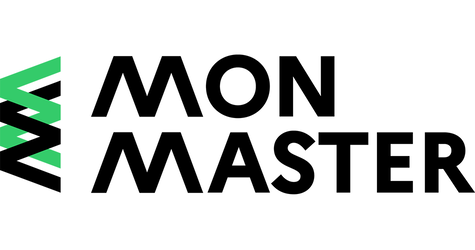Mon Master: The unique platform for applying for a master’s degree beginning in March 2023
WHAT IS “MON MASTER” PLATEFORM ?
Mon Master is the new single platform that will replace the e-Candidat procedure for applicants in master’s degree starting in March 2023. Unlike the previous method which required submitting a file on the e-Candidat platform of each university, From now on everything will be done on the unique Mon Master site created by the Ministry of Higher Education and Research (MESR). It is an equivalent of Parcoursup for a master’s degree level with over 3,500 courses and 8,000 specializations.[1]
This platform allows you to apply and to find out about the various training courses available (particularly the degree of selection) for a master’s degree in France and, according to the ministry, you can also benefit from the help of the rectoral services if you do not obtain a positive response.
Following the reviews of the files by the universities, you can obtain 3 types of responses: refusal, waiting list, or admission. If you receive an admission proposal, you can reject, accept, or accept provisionally while waiting to be admitted to another course or major.
This new procedure is supposed to facilitate and accelerate the application process to a master’s degree program by simplifying the procedures, providing a better understanding of the spots available, and setting up a single national calendar. However, the Ministry of Higher Education and Research emphasizes that the files will not be processed by the algorithm: they will be processed by the administrative services of the universities only.
WHAT ARE THE DATES FOR 2023?
| From 22 March to 18 April, 2023 | Submission of applications |
| From April to June 2023 | Reviews of applications by the institutions. |
| From 23 June to 21 July 2023 | Admission phase (transmission of admission proposals to applicants and applicants’ response to these proposals). |
| Beginning 23 June 2023 | After acceptance of an admission proposal, administrative registration with the institutions, according to the schedule established by each one of them. |
WHAT ARE THE TERMS AND CONDITIONS FOR ADMISSION TO A MASTER’S DEGREE PROGRAM?
To Apply on Mon Master, you must:
- Have a baccalaureate +3 years of higher education (bachelor’s degree or equivalent).
- Come from a member country of the European Economic Area or reside in France.
- Submit a complete file within the given deadlines,the following items for all the trainings will be present on the platform interface ; CV, Post-baccalaureate courses, the transcript (it is not mandatory to provide it with a sworn translation), internships performed, and professional experiences. All the documents must be in PDF format and must not exceed 2MB!
- Institutions will then request a list of documents (of their choice) to be provided in PDF format (cover letter, supporting documents, CV in English, etc.). This list will be specific to each training.
- Make a maximum of 15 wishes per student in initial training (1 wish = several possible routes) plus 15 wishes in apprenticeship
- The candidate may subsequently be called for interviews.
Applicants who are NOT concerned by Mon Master procedures
- Those of foreign nationality (outside the European Economic Area) whose country of residence benefits from the Études en France
- Students authorized to repeat their first year of master’s degree.
- Students wishing to access the few schools or training courses that are not on the platform and that must be contacted directly.
- Applicants wishing to be admitted to the first year of a master’s degree through a validation of higher education (VES); moreover, the procedure for validating professional experience (VAP) is not managed by the platform.
- Students whose course automatically provides admission to the first year of a master’s degree in engineering (CMI).
- Students in continuing education or resuming studies must apply via the e-Candidat in certain institutions (e.g Sorbone-Paris-Nord). You must prove that you have left the waiting lists of the Mon Master platform via an attestation (made by the platform)
The course of the admission phase:
- Possible responses from universities: admission, refusal, or waiting list (with the spot number on the waiting list so that everyone can situate themselves and evaluate their chances).
- Note that admission is NOT automatic, it is done after the reviews of the file and/or on competition or following an interview and on the condition of having found a contract in the case of a work-study training.
- Time limited to respond gets shorter (for a proposal received before June 24, you have until June 26 to decide and from June 24, you will have approximately 36 hours to respond) to accept or not the admission proposals, after this time it will be considered that you have refused the proposal and your place will be offered to another person.
- In case of refusal: there is a possibility of asking the reasons for the refusal from the head of the institution up to one month after having obtained the answer.
Special cases :
– If the candidate does not receive an admission proposal: the possibility to contact the rectorate: the procedure here (Note that the conditions have been tightened since the start of the 2021 school year and that this is still not happening)
– If the candidate is late, it is possible to contact the training manager who may or may not choose to accept the application. This approach must strictly remain exceptional and less likely to succeed!
– If the waiting list is exhausted starting September 1, each institution will have the opportunity to conduct their own recruitment. Students can make spontaneous applications (but the modalities will be decided by each institution).
– There is a “Mobility Master” grant for students: you must be a scholarship holder and enrolled in a bachelor’s degree at the university in France the year before the master’s degree.
OBSERVATIONS of Union des Etudiants Exilés
Derogations from this new application procedure have been established by decree of the Ministers responsible for higher education and the departments of outre-mer for certain specific training courses, certain particular calendars or certain students having a special status.
More specifically, the decree of the ministers responsible for higher education and the departments of outre-mer of 22 February 2023 specifies that candidates of foreign nationality (with the exception of citizens of the European Economic Area countries, Andorra, Switzerland or Monaco) whose country of residence is covered by the Etudes en France program, are subject to this project.
However, this program is intended for foreign students residing abroad. It aims to process their application at a French university and to follow up on foreign students.
It would seem that it has not foreseen how refugee students, stateless persons or asylum seekers who reside in France and wish to continue their studies in France will be able to apply for the second cycle of higher education. It is also important to note that there is a special procedure for exiled students to apply for the first cycle of graduate studies in France, but it is uncertain if this procedure is also applied for the second cycle of graduate studies.
Even if specific derogation procedures are not provided for exiled students, they can contact the person in charge of training directly, in case of difficulties.
However, we remain vigilant for any blockage that could make it difficult for exiled students to apply and we recommend the following measures:
Recommandations of the UEE regarding exiled student candidates
- Publish, in particular through a circular, clear derogation procedures for university institutions regarding exiled students and the specificities due to their situation (such as their academic path sometimes being fragmented, digital precariousness etc.)
- Introduce a suitable and dematerialized support for exiled students with references who will be in direct contact with exiled candidates to help them in the application process.
- Put in place derogatory arrangements such as the Adapted Admission Application for exiled people.
- Introduce a derogation measure for the documents requested and/or expand the list of documents to be provided because exiled students do not always have their diplomas or documents requested with them because of their exile journey or their recent arrival in France.
- Extend the application period for people who would be untimely because of their exile journey.
- Etablir une procédure claire concernant l’équivalence des notes pour les diplômes non-européens
- Ensure that the procedure for entering the rectorate for applicants who have only received refusals is adapted to those in exile.
- Be vigilant and not reproduce the frequent discriminations during the selection of a master’s degree discovered by a recent study, which could affect some exiled people who apply: candidates of Maghreb origin according to their name are 12% less likely to obtain information about a master’s degree than a candidate with a French-sounding name. This goes up to 30% for the most famous master’s degree.[1]
[1] Discriminations à l’université : pour la première fois, un testing cible 600 responsables de Masters (radiofrance.fr)
Explaining video (in french): Tout savoir sur Mon Master en 2023, la nouvelle plateforme nationale – Thotis Master – YouTube
Link to Mon Master platform here



